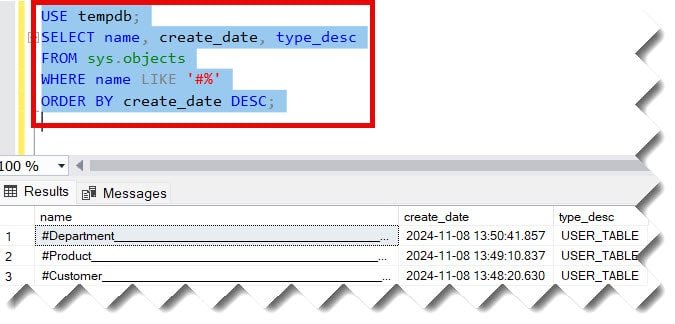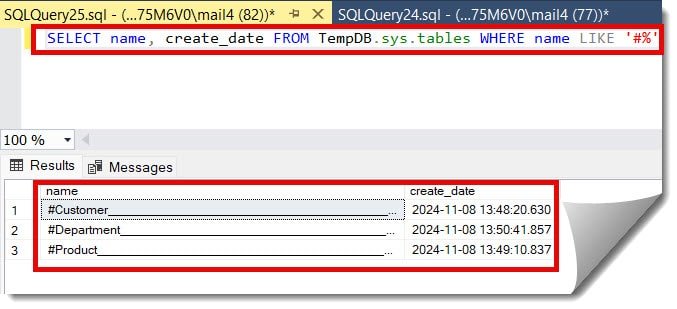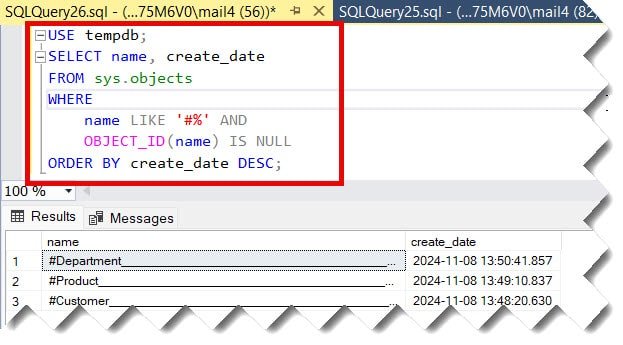As a senior developer, I used to be required to work with temporary tables. But as you know, the temp table is crucial while working with an SQL server. So, I have identified a few approaches to this. In this article, I will walk you through all those approaches individually.
Approach-1: Using the tempdb System Views
To get the temp table in SQL Server, we can query the tempdb database. To this end, we can execute the SQL query below.
USE tempdb;
SELECT name, create_date, type_desc
FROM sys.objects
WHERE name LIKE '#%'
ORDER BY create_date DESC;After executing the above query, I got the expected output below.

Check out How To Create A Temp Table In SQL Server
Approach-2: Using the sys.tables
We can also use the sys.tables to retrieve the temp table details using the below query.
SELECT name, create_date FROM TempDB.sys.tables WHERE name LIKE '#%'After executing the above query, I got the expected output below.

You can also use the below query to get the orphaned temp tables.
USE tempdb;
SELECT name, create_date
FROM sys.objects
WHERE
name LIKE '#%' AND
OBJECT_ID(name) IS NULL
ORDER BY create_date DESC;After executing the above script, I got the expected output, as shown below.

Conclusion
Finding the temp tables in SQL Server is crucial for an SQL developer using the approaches mentioned in this article. As a developer, you choose the approach based on your requirements.
You may also like following the articles below.
- SQL Server If Object_ID Is Not Null Drop Table
- How To Insert Into Temp Table In SQL Server
- How To Drop Temp Table If Exists In SQL Server
- How to create index on temp table in SQL Server

Grey is a highly experienced and certified database expert with over 15 years of hands-on experience in designing, implementing, and managing complex database systems. Currently employed at WEX, USA, Grey has established a reputation as a go-to resource for all things related to database management, particularly in Microsoft SQL Server and Oracle environments. He is a Certified Microsoft SQL Server Professional (MCSE: Data Management and Analytics) and Oracle Certified Professional (OCP), with Extensive database performance tuning and optimization knowledge and a proven track record in designing and implementing high-availability database solutions.